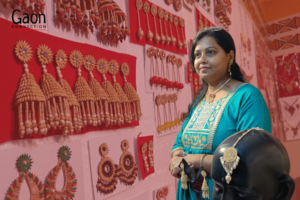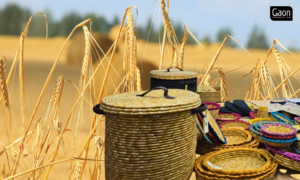Afshana Ahad is one of the all-women team that runs the Srinagar Millet Hub in the heart of the summer capital of Jammu & Kashmir. The 23-year-old, daughter of a Kashmiri fisherman, grew up watching her father fish at Dal Lake and sometimes accompanied her mother to the market to sell the day’s catch.
Today, Afshana Ahad is one of the managers of the restaurant along with her 11 other companions, that was opened in October this year. It runs from a space allocated at the District Commissioner’s office in Tankipora in Srinagar.
All the 12 young women, who run the Srinagar Millet Hub, come from fishing and farming communities in Habak Shanpora, about 12 kilometres away from Lal Chowk, the heart of Srinagar city.
The restaurant that can seat about 25 people at a time, serves millets in a variety of ways, and also offers the delicious Kashmiri Wazwan to its guests. It opens its door at 10 am and closes at 4 pm. The 12 women manage the enterprise entirely from buying the produce and provisions from the market to cooking the food and serving their customers.
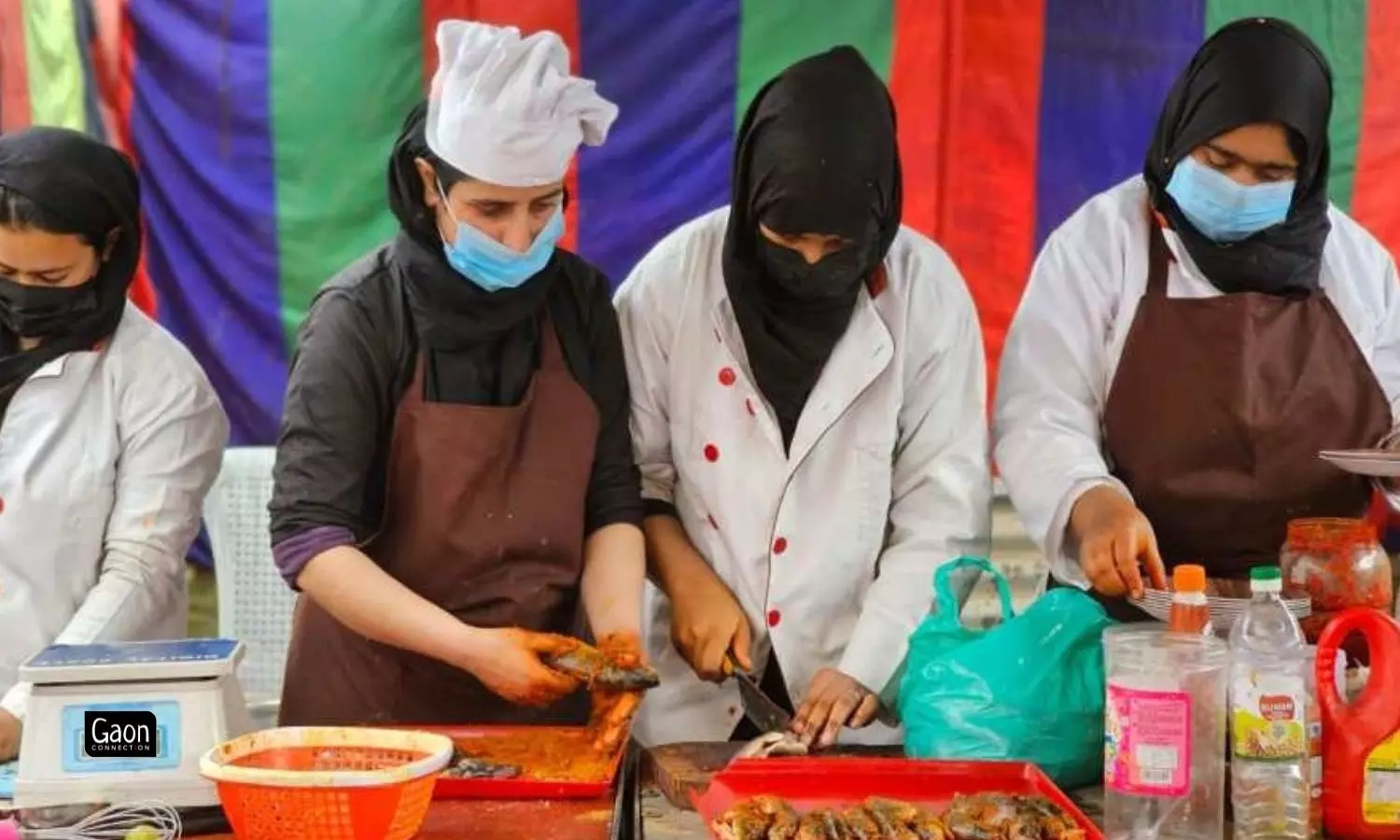
The all-women team that runs the Srinagar Millet Hub manages the enterprise entirely from buying the produce and provisions from the market to cooking the food and serving their customers.
All of them are part of a state government programme called UMEED, that empowers women through skill development, and personal growth opportunities. The programme is an initiative of the J&K Rural Livelihood Mission (JKRLM) and was started in June 2013 to help women from marginalised sections of society to start and run gainful livelihood ventures.
Also Read: A modern avatar of the charkha is helping Kashmiri women make a living through spinning yarns
Afshana has just completed her Masters in Political Science from the University of Kashmir and is now managing the restaurant. “Despite financial challenges, my family ensured my education was not interrupted. This is my way of giving back to my family,” Afshana told Gaon Connection, who earns up to Rs 5,000 a month.
In 2018, she enrolled into UMEED where she did a three-month training in cooking at the Institute of Hotel Management (IHM), Srinagar. The other 11 young women are also trained under UMEED.
“All 12 of them underwent training at the IHM. The department bore the entire expense of that and later helped them set up their restaurant too,” an official of JKRLM, told Gaon Connection.
Prior to setting up the restaurant, these women cooked the food in their home kitchens and sold their preparations both online and at food exhibitions.
The food of this team of 12 caught the attention of Lieutenant Governor Manoj Sinha in the course of the G20 Working Group Meeting held in Srinagar in March 2023.
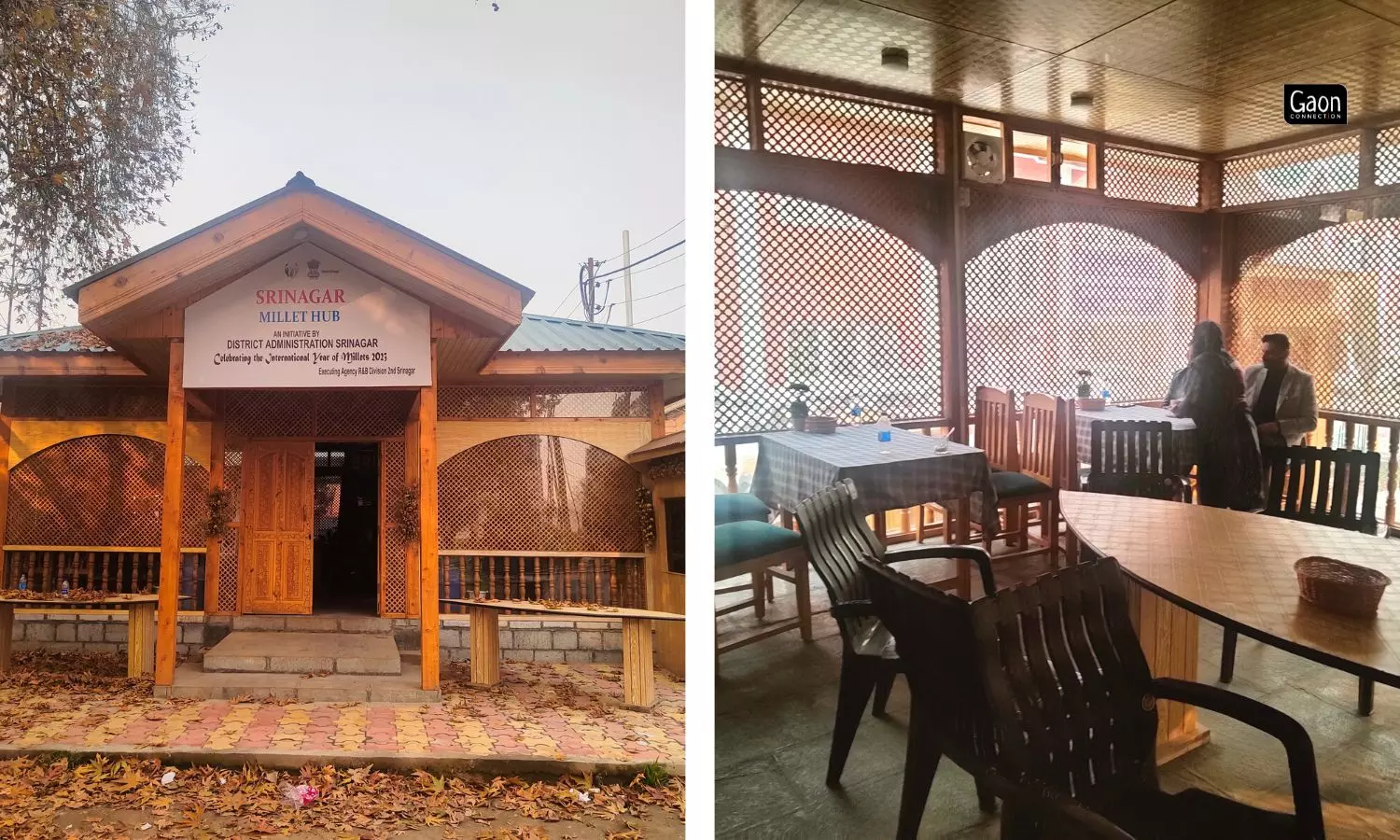
The restaurant that can seat about 25 people at a time, serves millets in a variety of ways, and also offers the delicious Kashmiri Wazwan to its guests.
A special food stall named ‘Millet Hub’ was set up for foreign delegates where Afshana and her colleagues served them dishes made of Finger millets, Barnyard millets along with the traditional lotus stem chips, and more.
The delegates relished what they served. The Lieutenant Governor pledged assistance to the young women and enabled them to get a space to run their own cafe. The J&K administration allocated them a space at the District Commissioner’s office in Srinagar, where they established the ‘Srinagar Millet Hub’.
“We invested approximately Rs 5 lakh that we took as loan from a bank to buy essential items to start the restaurant. The government provided us with free space so far,” Afshana said.
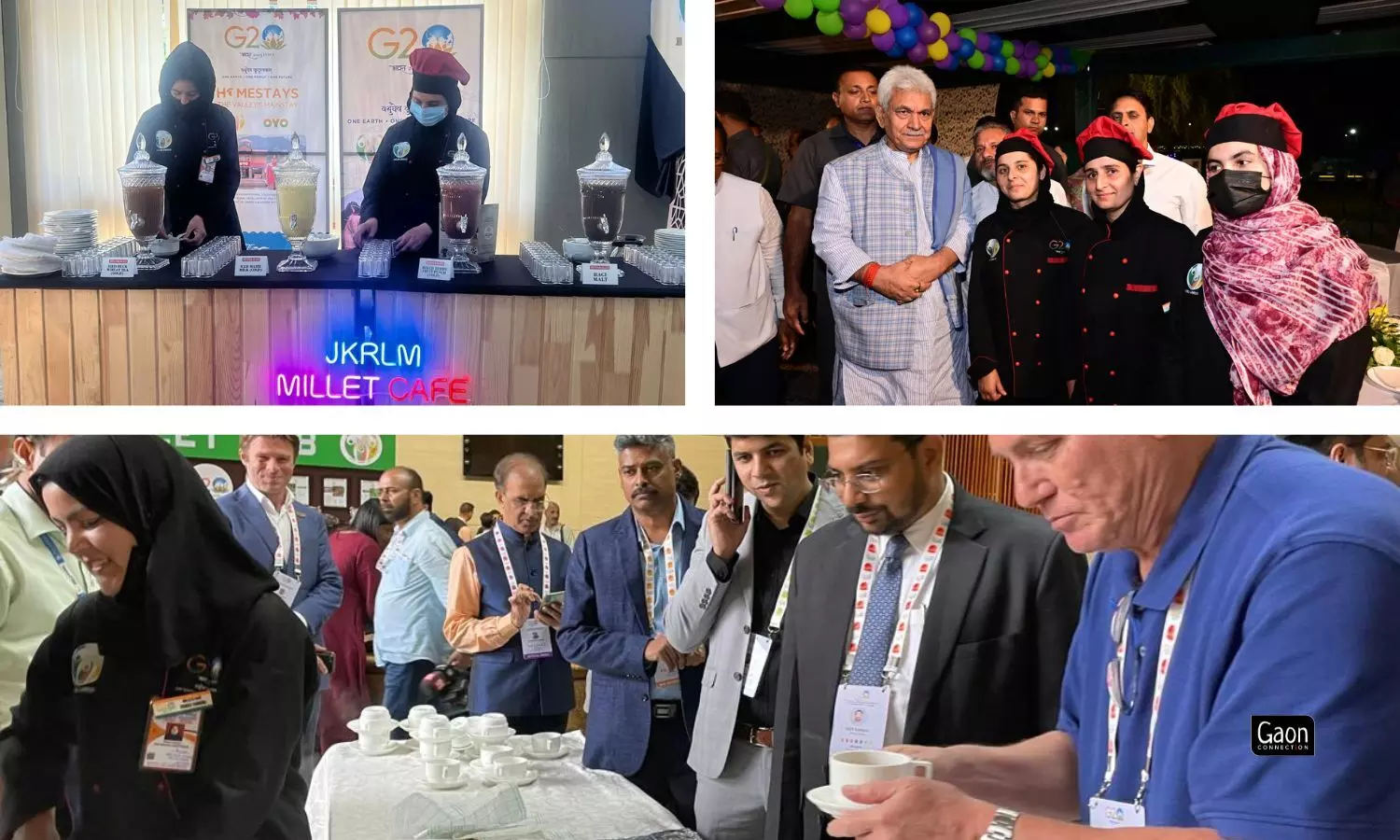
A special food stall named ‘Millet Hub’ was set up for foreign delegates where Afshana and her colleagues served them dishes made of Finger millets, Barnyard millets etc.
Gulshan Ban is a part of the all-women team that runs the Srinagar Millet Hub. The 30-year-old had dropped out of school after class 12 due to financial constraints in her family. Her father is a farmer.
“It was not easy for us to set up the restaurant, coming as we do from orthodox and tradition-bound families. Gender roles are very marked in our community, and the fact that we would be serving men too, was a problem. But our families were supportive,” Gulshan, whose father is a farmer, told Gaon Connection.
She had also applied for the three-month IHM programme under UMEED, in 2018. Initially, she along with the others had set up a stall at the Indira Gandhi Memorial Tulip Garden in Srinagar that they operated for one month every year. Their food was popular and they began to get orders online too.
“When delegates and visitors tasted our food, LG Sahab met us and directed officials to allot us a space for a restaurant. Ever since there is an increase in our earnings, Each of us has earned at least Rs 5,000 a month from the Srinagar Millet Hub, since we began,” she said.
Also Read: Young Kashmiri Women Find Success in Trout Fish Farming
The women are confident they will make more money as time goes by.
According to Indu Kanwal Chib, Mission Director of J&K Rural Livelihood Mission, “There are over 6.75 lakh women who are part of 74,000 self help groups in J&K who are supported by the government under the UMEED scheme. These 12 girls who set up the restaurant at DC office Srinagar, are part of that. Their work was widely appreciated.”
The father of one of the girls said that he couldn’t be prouder. “If girls of upper class families can do any job why can’t our daughters do the same,” he asked. “These girls are an inspiration to other girls that they should not stop chasing their dreams irrespective of their financial constraints and family backgrounds,” he told Gaon Connection.









